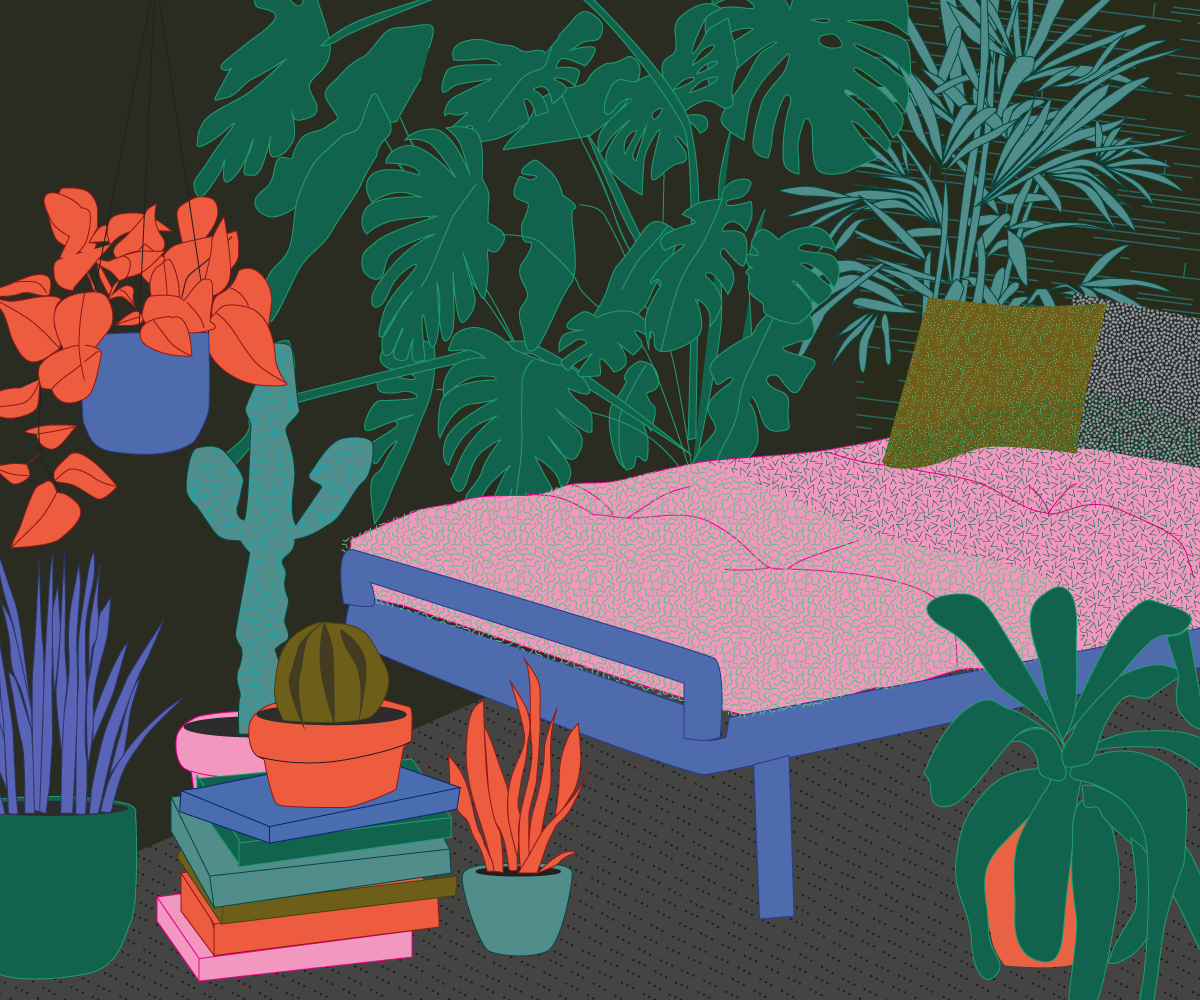This Is How Meditation Gurus Sleep Like Babies
Om your way to better Z’s.
Published Jun 4, 2017 7:00 AM
We may earn revenue from the products available on this page and participate in affiliate programs.
They know their way around a calm waking state, but we’d posit that major meditators du monde are pretty good at drifting off to dreamland in an efficient fashion, as well. Here, we caught up with the best meditation mavens (and men) in the game to glean their most helpful tips on quick, easy additions to your bedtime routine to help you get to sleep seamlessly.
Just 10-15 minutes of meditation can make a difference.
Founder of The Tantris Center for Yogic Science, Chairman of Rush Communications, and Co-founder of Def Jam Russell Simmons recommends sitting up in bed or on a pillow, lighting a candle or incense, dimming the lights, and setting the alarm on your phone for 15 minutes while you repeat the mantra “RUM” quietly to yourself. He also recommends taking a hot bath with lavender oil, sipping camomile tea, and placing electronics on “do not disturb” to avoid any sound or light disruption.
Give yourself a foot rub.
Aveda Director of Spa Education Marc Zollicoffer says that one of the best ways to help you get a better night sleep is to massage your feet with Aveda Stress Fix Body Creme. The aroma of lavender, lavandin, and clary sage helps reduce the feelings of stress and promotes relaxation. “Your feet are further from the head than anything else, so this helps ground you and calm the body for optimal rest,” he says. “Massage the inside arch of one foot with the heel of the other foot. Having a partner rub your feet is even better!”
Routine is key.
Ruby Warrington, founder of The Numinous and author of Material Girl, Mystical World, says that a regular bedtime is the most important thing. “My ideal is to be in bed by 9:30p.m. for 30 minutes of reading, and then lights out by 10p.m.,” she says.
Cut out alcohol.
“It’s easy to think that alcohol helps us sleep since it feels like it relaxes us,” says Warrington. “But it actually reduces REM sleep, and the closer you drink before bedtime the less REM you’ll get.”
Try lemon balm.
Joel Granik, licensed acupuncturist and co-founder of Floating Lotus, says it’s all about drinking an herbal tea with lemon balm, “an herb that most people don’t know about and a powerful natural sleep aid.” He recommends steeping it in hot water for 30 minutes, then mixing in dried lavender and chamomile to make it more effective.
Regulate your sleep cycle with magnesium.
Granik says magnesium helps regulate sleep cycles and allows you to sleep better and deeper. “Floatation therapy uses Epsom salt, which contains magnesium that the body absorbs, which is why floating helps with sleep,” he explains. To reap the benefits at home, try taking a long bath with Epsom salt or take magnesium effervescent tablets.
Try essential oils.
Holistic wellness expert and co-founder of Floating Lotus Jackie Itzkowitz says aromatherapy helps her fall asleep. “Apply chamomile, ylang ylang, or eucalyptus essential oil to the feet, wrist, or temple before going to bed,” she advises. Or you can also use a diffuser for the same effect. “If you’re not sleeping well due to seasonal allergies, eucalyptus essential oil is especially helpful.”
Change your eating habits.
Itzkowitz also says to avoid sugar and caffeine past 2p.m. so your body has time to metabolize it before bedtime.
Unplug from all devices.
Yoga teacher Jeannine Morris recommends turning off everything including the TV for at least 30 minutes before hitting the pillow. “The blue light they give off will interfere with your sleep pattern,” she explains. “If you absolutely can’t unplug (hello deadlines, Facebook stalking, etc.), dim the lighting on your screens.”
Try a meditative breathing exercise.
Once wound down and in bed, try a five-count breath to calm your nervous system. “Inhale deeply for five counts, hold your breath at the top of your inhale for five counts, and then exhale for five counts,” Morris says. She adds that it’s important to stay focused on the breath and if you become distracted, just return to it. Repeat this exercise five to seven times without interruption.
Visualize a calming scene.
Morris suggests that as you lay in bed, picture sand pouring out of your entire body. “Start with your head and go through each body part all the way down to your toes,” she says. “This technique helps you relax because your body will feel heavy, and the focus on the sand pouring out is meditative.”
Keep a pen and paper on the nightstand.
If you’re typically an anxious person, keep a pen and pad on your nightstand so as to-dos come up, you can scribble them down and not worry about them until the morning, Morris says.
Related reading:
How This One Sleep Habit Could Be Messing With Your Entire Body How to Sleep Better: Must-Try Tips from Acupuncturists We Tried 8 Tricks for Better Sleep
